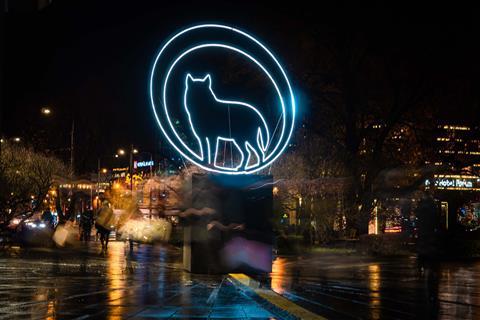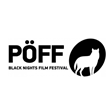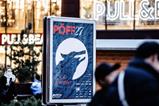
Tallinn Black Nights Film Festival (PÖFF) is mounting its 29th edition in November, boasting a focus on Catalan cinema, a bolstered documentary section and the latest edition of the prestigious Discovery Campus programme for rising filmmakers.
Catalan cinema will be represented across both of PÖFF’s sub-festivals — Just Film and PÖFF Shorts — as well as in the main festival competitions and sidebar programmes, including Golden Classics. Catalan producers will participate in all elements of the industry programme.
“Like Estonia, Catalonia has its own language and strong regional identity,” says PÖFF festival director Tiina Lokk. “A Catalan focus will create a powerful thematic bridge between the host country and the films shown, emphasising linguistic and cultural preservation, minority voices and regional storytelling — core values often celebrated by Black Nights.”
PÖFF is also hosting the more tightly curated Spotlight strand on Austria. “The focus will capitalise on heightened interest in Austrian filmmaking, and give Estonian and regional audiences access to fresh, relevant works from a country currently shaping arthouse trends,” notes Lokk.
This year will mark the second edition of PÖFF’s international documentary competition Doc@PÖFF, and will be expanded to include two distinct competition sections: the International Documentary Competition for world or international premieres, and the new Baltic Documentary competition.
“This is a big step forward,” says Doc@PÖFF competition programme curator Marianna Kaat. “Previously, Baltic documentaries were grouped together with fiction films in a regional competition. Starting this year, we’re giving them a standalone platform to truly shine — something that feels long overdue, especially considering the strength and diversity of recent Baltic documentary output.”
Both competitions are exclusively for feature-length films, with an emphasis on bold, cinematic and emotionally resonant storytelling. “While we don’t enforce a specific theme, we are drawn to urgent, creative and deeply human perspectives — films that stay with you long after the credits roll,” says Kaat.
This year’s Script Pool programme, part of Discovery Campus, will include debut feature projects. “Script Pool is a unique platform for filmmakers to present their vision, receive constructive feedback from industry experts and connect with potential international partners to move their project forward,” notes Triin Tramberg, head of Script Pool and programme curator for the Debut Film Competition.
“We are especially interested in distinctive, original stories that are in the development stage — meaning there is a completed script and some initial financing already in place.”
Submissions for the Script Pool competition are open and, for the second year, the most promising project winner will be awarded an exclusive opportunity to attend the Writers’ Retreat in Mallorca.
This year’s festival is also welcoming the TV Beats Co-Financing Market as part of TV Beats Forum, and will see the return of a TV screening day to spotlight fresh drama series from the Baltic and Scandinavia regions.
PÖFF in Cannes
This year in Cannes, two former Script Pool project participants — The Mysterious Gaze Of The Flamingo by Diego Céspedes and Mama by Or Sinai — will premiere in Un Certain Regard and as a Special Screening respectively.
PÖFF is also screening five projects to sales agents and distributors in the market on May 16. It will mark the fifth year PÖFF has participated in the Goes to Cannes programme, which brings work-in-progress projects by promising talent from the Baltic region to the international industry. The feature projects are without sales agents and aiming for a festival premiere.
The Estonian projects are Ove Musting’s Pig Slaughter and Mo Amor directed by Eeva Mägi. Mo Amor is Mägi’s third PÖFF Goes to Cannes-backed feature after Mo Papalast year and Mo Mamma, which won the special jury prize in the first feature competition at PÖFF 2023.
“Her trilogy will soon be complete, and it’s clear she’s truly coming into her own, finding both her style and voice as a director,” says Lokk of Mägi. “These are just some of the highlights from the exciting selection of projects we’re proud to present.”















![[L-R]: Amanda Villavieja, Laia Casanovas, Yasmina Praderas](https://d1nslcd7m2225b.cloudfront.net/Pictures/274x183/6/4/1/1471641_pxl_20251224_103354743_618426_crop.jpg)











